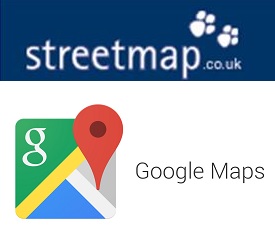UK-based mapping pioneer Streetmap has lost a long-running legal battle with Google.
The High Court action accused Google of abusing its “dominant position” in the online search market by “driving traffic” from rivals to Google Maps.
Streetmap.EU Ltd said the introduction of a new “big map” service by Google in 2007 was followed by a “dramatic loss of traffic” to its website.
In June 2007, Google added a Maps “OneBox” to its main search page, including a graphic image from Google Maps.
No other links to any other mapping providers, and as a result of the box, the organic search results for third party mapping providers were pushed down.
StreetMap was also hit because it relied on B2B income from providing an API to business, while Google provided API access for free. The Court heard the evidence last November.
In the case, Streepmap asked Mr Justice Roth to rule that Google had engaged in “anti-competitive conduct” contrary to provisions of the Competition Act 1998.
But the judge ruled that the introduction by Google of the new-style Maps OneBox in 2007 was “not reasonably likely appreciably to affect competition in the market for online maps”.
The judge added that, in any event, Google’s conduct was ” objectively justified”.
Streetmap launched its online mapping services way back in 1997, and was one of the first providers of online mapping services as more people started to use their PCs and WAP phones to find addresses.
It includes OS maps that show data that Google Maps doesn’t, such as footpaths.
Speaking after the hearing, Streetmap director Kate Sutton said the decision was “unfair for small businesses”.
“The decision makes it effectively impossible for a small business to bring a competition law complaint until it is too late, because the information required will simply not be known to them,” she said.
“By raising the standard of proof from probability to ‘appreciable effect’ a complainant needs to have information which will usually only be known to the dominant company.”
A Google spokesman said: “The court made clear that we’re focused on improving the quality of our search results. This decision promotes innovation.”
